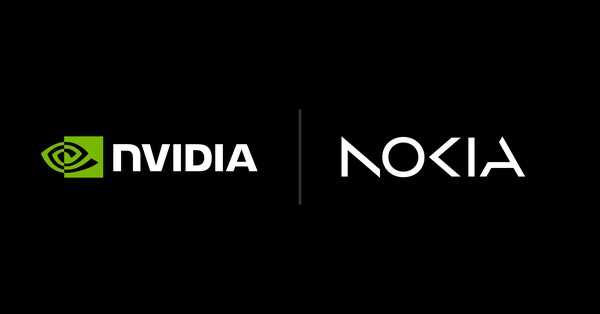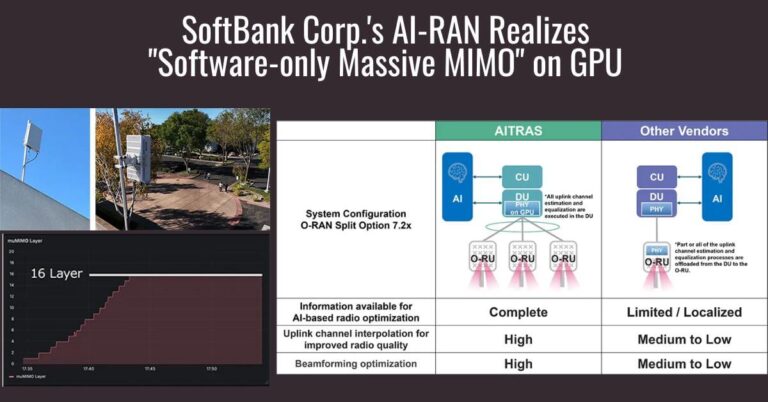SK Telecom’s Generative AI Strategy: Introduction and Overview
SK Telecom is at the forefront of integrating Generative AI into its operations, focusing on deploying specialized Large Language Models (LLMs) tailored for the telecommunications industry. The launch of Telco LLM marks a significant milestone in SK Telecom’s AI journey, designed to enhance work efficiency and improve customer service by mastering complex telecom industry concepts.
Telco LLM: SK Telecom’s Telecom-Specialized AI Model
SK Telecom is set to deploy its telecom-specialized Large Language Model (LLM), known as Telco LLM. This model is developed to address the unique needs and complexities of the telecommunications industry. Unlike general-purpose LLMs, Telco LLM is fine-tuned to understand specific telecom-related concepts such as mobile plans, memberships, and device subsidies. This specialization allows it to perform high-level generative AI tasks tailored to the telecom sector, enhancing both employee productivity and customer service.
Key Features and Benefits of Telco LLM
The Telco LLM offers a range of key features and benefits that significantly enhance customer service efficiency, facilitate multi-LLM collaboration, and support broad operational applications. Firstly, it improves customer service by drastically reducing response times. Solutions provided during customer calls can now be delivered in just a few seconds instead of over three minutes. Additionally, the model’s capability to understand and accurately respond to telecom-specific inquiries ensures precise and timely assistance, improving the quality of service.
Collaboration with leading AI companies, such as OpenAI and Anthropic, contributes to the model’s robustness. By integrating multiple large language models (LLMs) like SK Telecom’s LLM A.X, OpenAI’s GPT, and Anthropic’s Claude, Telco LLM benefits from a collaborative development process. Extensive fine-tuning and benchmarking tailored to telecom data and domain expertise further optimize the model to handle various telecom-specific scenarios effectively.
The applications of Telco LLM extend beyond customer service centers, where it primarily enhances efficiency by providing real-time support and solutions, thus reducing wait times and improving customer satisfaction. It also plays a significant role in marketing and supply chain management, streamlining operations, and enhancing decision-making processes. Moreover, Telco LLM benefits internal operations, including legal services and human resources management, thereby increasing overall operational efficiency across the board.
The Impact of Telco LLM on SK Telecom’s Operations
Eric Davis, Vice President and Head of AI Tech Collaboration at SK Telecom, emphasized the challenges of addressing telecom-specific needs with a single general-purpose LLM. Telco LLM overcomes these challenges by being finely tuned to the specific requirements of the telecommunications industry. This allows SK Telecom to select and use the most suitable model for various situations, ensuring high accuracy and response efficiency.
Jeong Min-young, Vice President and Head of AI Platform at SK Telecom, highlighted the broader impact of Telco LLM, stating that it will increase operational efficiency not only in customer service centers but also in other critical sectors such as marketing, supply chain, customer touchpoints, and internal operations.
Advanced AI Capabilities and Collaborations
SK Telecom’s Telco LLM results from extensive collaboration with top-tier AI companies like OpenAI and Anthropic. This partnership has enabled SK Telecom to integrate cutting-edge AI technologies into its operations, creating a multi-faceted LLM that is highly adaptable and efficient.
The collaboration with AI leaders has significantly enriched Telco LLM, enhancing its functionalities and performance. Partnerships with OpenAI and Anthropic have integrated advanced technologies such as OpenAI’s GPT and Anthropic’s Claude, ensuring that Telco LLM benefits from cutting-edge AI research and development. This collaboration has resulted in a powerful and flexible model that can be fine-tuned and customized to meet the specific needs of various applications within the telecom industry.
Operational enhancements have been further supported through SK Telecom’s collaboration with NVIDIA. This partnership has led to notable advancements in AI applications, including the optimization of vehicle routing for field technicians using NVIDIA CuOpt, which enhances operational efficiency and reduces costs. Additionally, the deployment of NVIDIA Triton Inference Server and RAPIDS AI software has accelerated data processing, providing real-time inferencing capabilities essential for AI/ML applications and the Ask AT&T platform.
Real-time support and decision-making have been improved through enhanced data processing capabilities. The implementation of advanced AI software has doubled the data processing speed while halving costs, allowing SK Telecom to manage large volumes of data in real time and provide immediate insights across various departments. Furthermore, SK Telecom is testing NVIDIA Riva to integrate voice-to-text capabilities into several generative AI applications, enhancing Telco LLM’s functionality by enabling seamless interactions and real-time support.
SK Telecom’s Strategic $10 million Investment in Perplexity for AI Search Cooperation
SK Telecom is also expanding its AI capabilities through strategic investments. The company recently announced a $10 million investment in the U.S. artificial intelligence startup Perplexity. This collaboration aims to enhance AI search services by combining SK Telecom’s telecom expertise with Perplexity’s advanced AI search technology.
Perplexity plans to invest in Global AI Platform Co., an AI service development arm of SK Telecom in Silicon Valley. This mutual investment strengthens their strategic partnership, which was initially established during the Mobile World Congress in February. Through this partnership, Perplexity will assist SK Telecom in developing an AI search engine for its personal AI assistant service, which is designed for the global market. Additionally, SK Telecom will provide Korean-language data and cultural content to Perplexity, aiding in refining its large language model and enhancing its search solution.
Perplexity’s AI search service, a strong competitor to Google, utilizes generative AI models to answer user inquiries swiftly and accurately, providing a significant edge in the search engine market.
“Based on the cooperation between the two companies, we plan to strengthen the search capabilities of A. and release a globally top-level AI personal assistant service,” said Lee Jae-shin, SK Telecom’s head of global business development.
Moreover, SK Telecom plans to offer the paid version of Perplexity’s search service to its subscribers for free for one year, further enhancing the user experience and attracting more customers to both SK Telecom and Perplexity’s services.
Ensuring Ethical AI and Data Security
Ethics and data security are integral to SK Telecom’s AI strategy. The company prioritizes protecting customer data and ensuring that AI technologies are used fairly and responsibly. This commitment is reflected in SK Telecom’s consistent target architecture, which harmonizes the use of platforms, tools, and databases across all business units. By maintaining a single source of truth, SK Telecom ensures data integrity and uniformity in AI applications, mitigating risks associated with data breaches and ensuring compliance with regulatory standards.
Future Expansion and Use Cases of Telco LLM
SK Telecom plans to continue expanding the use cases of Telco LLM. The model’s capabilities will be extended to cover more areas within the organization, ensuring all departments benefit from its advanced AI functionalities. This ongoing development and expansion underline SK Telecom’s commitment to leveraging AI to drive innovation and efficiency across its operations.
Conclusion: SK Telecom’s AI-Driven Transformation
SK Telecom’s deployment of the telecom-specialized Telco LLM represents a significant advancement in the application of Generative AI within the telecommunications industry. By tailoring the AI model to the specific needs of the telecom sector, SK Telecom is set to revolutionize its customer service, operational efficiency, and overall business processes. As the company continues to expand and refine its AI capabilities, it stands as a leading example of how Generative AI can be effectively harnessed to drive transformation and growth in the telecom industry.







































